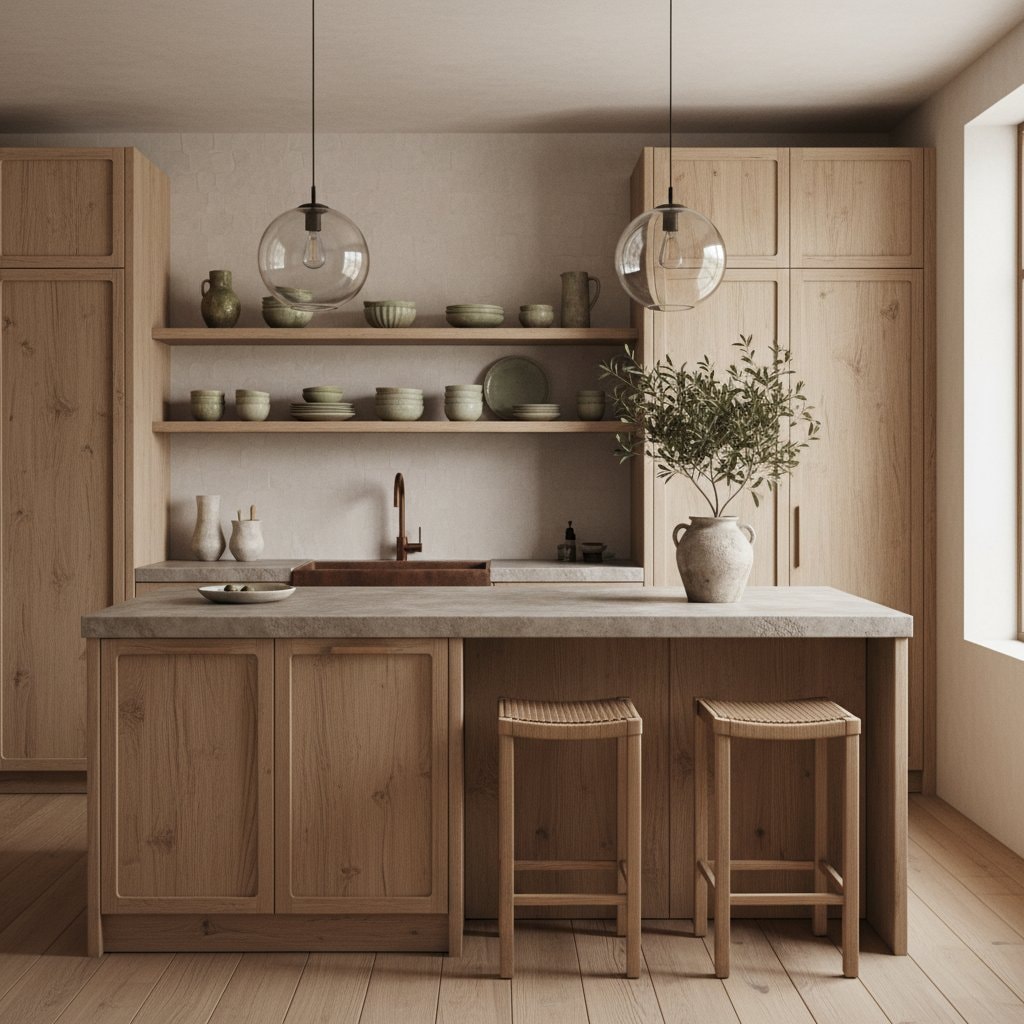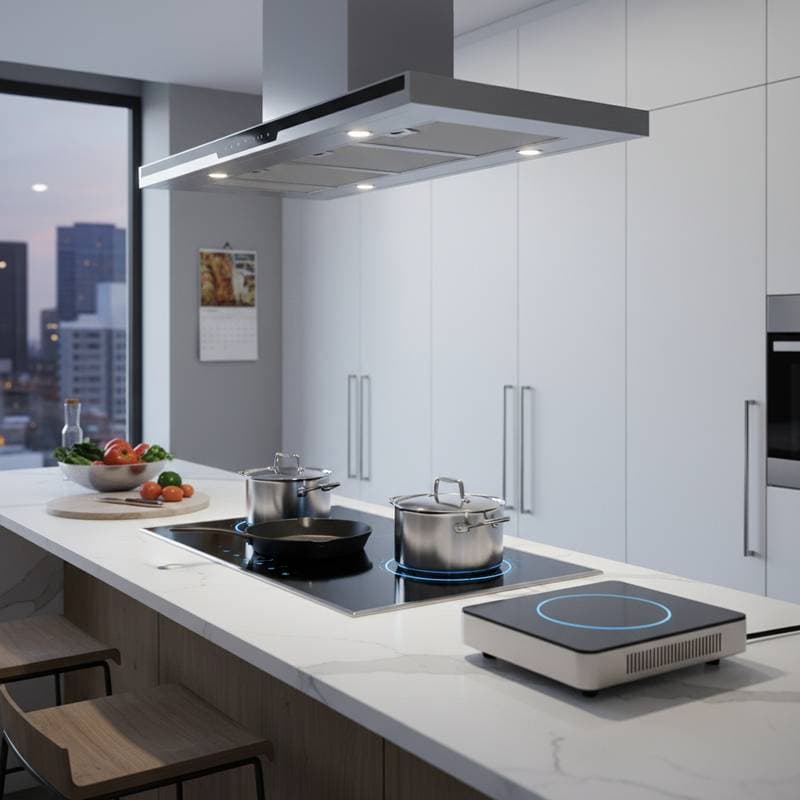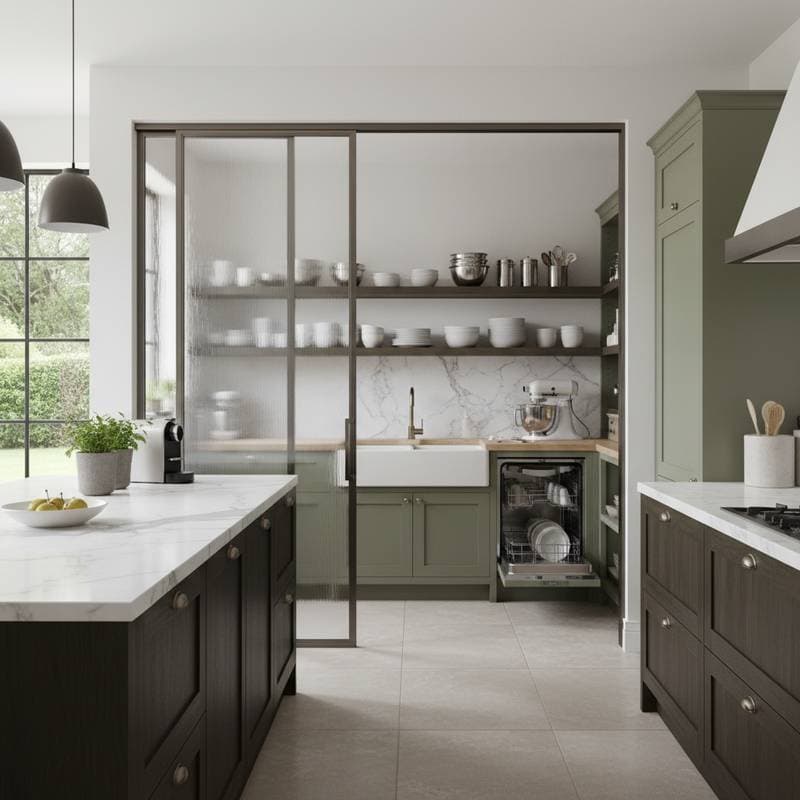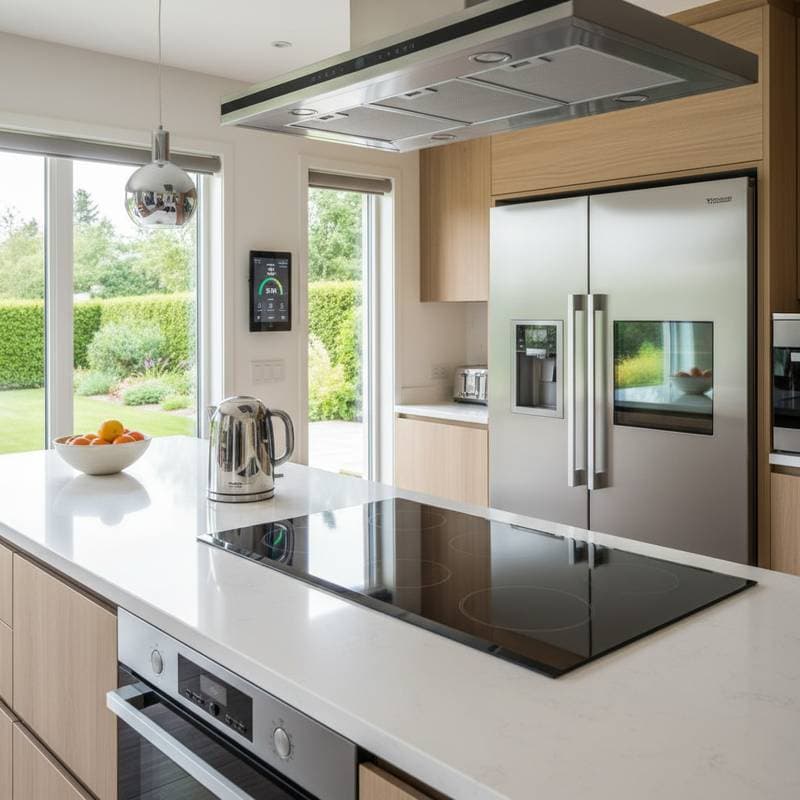Japandi Wabi-Sabi Kitchens: Embracing Imperfect Beauty in 2025
Homeowners increasingly seek designs that prioritize genuineness over polished uniformity. The Japandi Wabi-Sabi kitchen embodies this preference through a fusion of Japanese minimalism, Scandinavian coziness, and an appreciation for imperfection. This approach emphasizes honesty, equilibrium, and serenity rather than impeccable execution. As a contractor experienced in remodeling numerous kitchens with organic finishes and bespoke joinery, I observe that this method extends beyond aesthetics. It fundamentally alters how individuals inhabit and connect with their living spaces.
The Value of Imperfection in Kitchen Design
Conventional kitchen trends often pursue seamless uniformity. Flawless joints, reflective surfaces, and balanced arrangements prevail in design inspirations. However, these elements frequently result in environments that appear distant or overly delicate for daily use. In contrast, the Japandi Wabi-Sabi kitchen incorporates irregularity, tactile qualities, and individual narratives. Consider a artisan-crafted ceramic basin, a subtly irregular lime plaster surface, or salvaged timber shelves; each aligns with the core tenet that authentic beauty emerges from realness.
Clients benefit from this perspective when I advise them during consultations. Perfection tends to deteriorate ungracefully; a pristine worktop sustains damage that immediately detracts from its appeal. Natural stone, by comparison, develops patina and depth with use. Wabi-Sabi honors this natural progression, fostering spaces that evolve alongside their occupants.
Essential Principles for Japandi Wabi-Sabi Kitchens
Achieve this aesthetic without compromising functionality by adhering to three foundational principles.
-
Simplicity Enhanced by Texture
Maintain an efficient, unobstructed layout while selecting materials that offer inherent richness. Opt for cabinetry in wide-plank oak with visible knots, floor tiles in unglazed clay, and hardware in softly hammered brass. Steer clear of glossy lacquers or plastic composites that lack vitality. -
Embracing Organic Variations
Rather than concealing flaws, accentuate them to build subtle visual interest. Exposed wood grain, manually applied stucco finishes, and pottery with minor color shifts establish a serene, undulating pattern. Such elements demand artisanal techniques, infusing the space with irreplaceable warmth. -
Balance Through Intentional Sparseness
Eliminate excess while preventing a barren feel. Restrict accents to items of personal significance or practical purpose. For instance, a solitary hand-carved wooden tray or a handwoven cotton mat suffices to ground the area more effectively than an array of ornaments.
Pitfalls to Avoid in Your Remodel
Even thoughtful renovations can stray from Wabi-Sabi ideals due to common oversights, as I have witnessed across multiple projects.
-
Excessive Control Over Details
Attempting to dictate every aspect undermines the philosophy. Permit organic inconsistencies; for example, when choosing backsplash tiles, select batches with subtle shade variances to infuse life into the installation. -
Overloading with Diverse Textures
Restraint remains key. Limit selections to two or three harmonious options, such as untreated walnut, polished granite, and satin-finish iron. Additional varieties dilute the composition and overwhelm the senses. -
Neglecting Everyday Resilience
Genuine substances require diligent preparation and upkeep. Apply food-safe oils to exposed timber adjacent to water sources. Seal porous concrete counters to resist spills. Wabi-Sabi advocates intentional stewardship, not disregard.
Insights from a Contractor's Viewpoint
Implementing Wabi-Sabi designs presents unique demands and advantages for builders. The distinctive, non-uniform surfaces necessitate proficient craftsmanship. A lime-washed wall demands deliberate asymmetry without disorder, while a live-edge wooden slab requires exacting joinery amid its raw form. Select professionals versed in both technical execution and artistic nuance.
Allocate budget for extended fabrication periods in such endeavors. Custom-forged components demand additional hours for creation and fitting. Nevertheless, these investments yield enduring results, minimizing future repairs and enhancing overall value. Educating clients on this equilibrium ensures projects thrive in both form and economy.
Fostering Emotional Depth in Kitchen Spaces
The distinguishing feature of a Japandi Wabi-Sabi kitchen lies in its sensory and emotional resonance. Surfaces beckon interaction and convey narratives through their patina. This environment promotes unhurried routines, genuine meal preparation, and meaningful gatherings, supplanting the burden of perpetual upkeep on immaculate planes. Clients often report reduced anxiety over minor marks once they adopt this mindset. They shift from pursuing flawlessness to cherishing their home as a dynamic haven rather than a static exhibit.
Steps to Realize Your Wabi-Sabi Kitchen
Embark on your transformation by clarifying personal objectives before browsing images. Identify materials that resonate intuitively. Explore nearby lumber yards or pottery workshops to source items exhibiting inherent diversity. Maintain a narrow color scheme and truthful surface treatments.
During contractor discussions, articulate your desire for handcrafted elements that reflect human touch over industrial precision. Request physical samples for evaluation. Assess their feel under ambient illumination and envision their maturation. A true Wabi-Sabi kitchen attains peak allure through lived experience, not initial installation. Prioritize superior resources and expert installation from the outset to cultivate a space that matures beautifully over time.
Authentic elegance in domestic settings arises from sincerity, forbearance, and reverence for the imperfect. A Japandi Wabi-Sabi kitchen embodies this essence daily, subtly affirming that genuine existence flourishes beyond superficial sheen.









